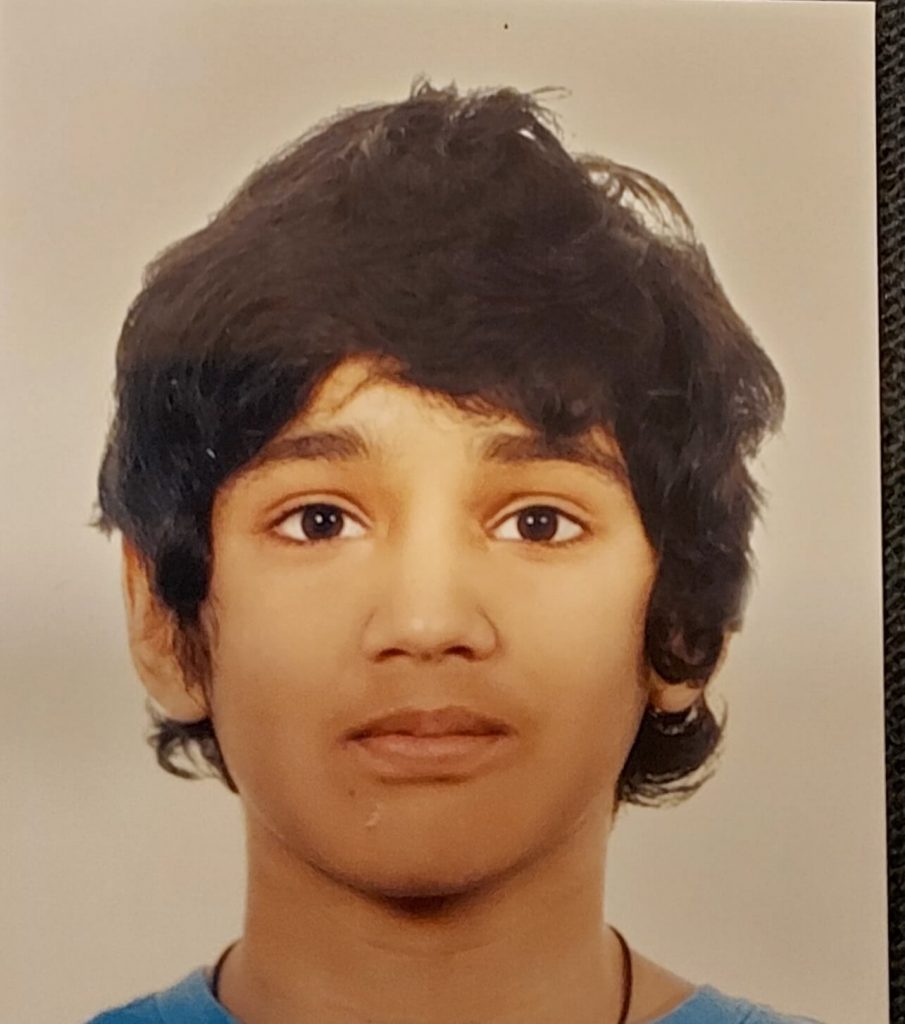Welcome to Ekya Schools Blog
Our Schools
What’s Trending?

Celebrating Doctors' Day: Honoring Healthcare Heroes in Ekya
In a spirit of gratitude and admiration, our campus gathered on June 30th to celebrate Doctors' Day, honouring the legacy...

Field Trip to Janapada Loka: Ekya’s Cultural Exploration
On June 30th, grade 8 students from Ekya JP Nagar went on an educational field trip to Janapada Loka. The...

Ekya Byrathi celebrates Literacy Week to foster the love for reading
Ekya Byrathi held a special week dedicated to all things books, Literacy Week, from January 30th to February 3rd, 2024....

Parents Day Innov8 at Ekya School Byrathi
Ekya School Byrathi celebrated Parents Day INNOV8 on February 17th, 2024, inviting parents, students, and guests to come together and...
Campus Highlights

administrator / March 01, 2024
How to Instil Road Discipline in Your Children: A Guide for Parents and Teachers
How to Ensure Road Safety for Children?
Teach them basic signals
First and foremost, teach the kids about the traffic signals and lights and what they mean;- When the signal turns Green, that means ‘go’.
- When the signal turns red, that means ‘to stop’.
- When the signal turns yellow, that means ‘to slow down’.
- Only walk when the ‘Walk’ sign appears, but look right and left before crossing the road.
- Do not cross the road when the sign says ‘Don’t Walk’.
Cross the road at the Zebra crossings
Teach the children to cross the road only at Zebra crossings, and guide them that they are meant for the safety of pedestrians. Help them understand the speed of a vehicle and that they can only cross when it is at a safe distanceEquip the children to understand signboards
To understand signboards, give your kids a mini-guide or pamphlet in which sign boards are explained in a way they understand.Avoid using mobile phones
In this era, even kids are using mobile phones. Teach the kids to strictly avoid mobile phones while on the road or roadside.Ride Bi-cycles carefully
Guide the kids to wear proper gear while riding bicycles, whether with friends or going to school. Make them wear helmets, elbow and knee guards. If they are riding bicycles in the dark, make them wear bright-coloured shoes.Do not jump traffic lights
In any situation, do not jump the traffic lights, teach the children to follow this rule as it poses a risk.Avoid playing on the road or roadside
Children are always excited and start running wherever they find the way. Tell them not to run and play on the road or roadside, it is always risky.Stand out of blind spots
Teach the children to never cross a road from in between vehicles or any other object, that is always dangerous. Guide them to always cross the road when it is clear.Follow bus safety tips
Guide the children about following the bus safety tips every time they travel on a bus.How Can Adults be Role Models for Children?
By following these steps, adults can teach children about road safety rules and discipline;- Teach the child to understand basic traffic signals and signs.
- By frequently checking whether the child stops, looks, listens, and thinks before crossing the road.
- Explaining road safety rules in simple language.
- Walking on the road and following the road safety rules together
- Do not use phones and other devices when walking on the road or around vehicles
- Always hold the child’s hand on the driveway or while crossing the road

administrator / March 01, 2024
How to Foster Active Listening Skills in Your Child: Tips and Strategies for Parents and Educators
- Always maintain eye contact while speaking: Parents and guardians should make eye contact with their kids. Making eye contact boosts their child's confidence and improves active listening skills which makes them more enthusiastic during conversation.
- Repeating the key points: During the conversation, parents should pay attention to the things their children are more focussing on and if they want them to focus more on a particular point, it should be repeated again and again. This will feed it into their subconscious mind.
- Ask multiple questions: Asking multiple questions during the conversation is a good way to develop listening skills among children as answering requires active listening. This is also a good way to develop inquisitiveness among them.
Here is the list of different types of listening:
- Critical listening: It involves listening and analysing both the positive and negative aspects of any topic and synthesising the information to form a point of view.
- Discriminative listening: In this type of listening interpretation is done by considering sound and body language rather than the words.
- Aesthetic listening: It involves enjoyment. Aesthetic listening is often used by parents or teachers to make the education fun and more engaging.
- Biased listening: It is also known as selective listening as the listener only focuses on a particular part of the communication. It leads to distorted information leading to communication.
- Take the help of audio resources: Children like to listen to audio clips as they find it more interesting and engaging. So parents should use audio resources for teaching different subjects. Nowadays audio resources are made using such special sounds that the brain finds more appealing. Such types of audio clips can be used to improve the active listening skills of children.
- Conduct regular listening activities: It is one of the best parenting tips for listening. Listening activities can be made in the form of games to make it more engaging and fun. Once a week it can be done as a group activity in school. This way children can not just participate but also learn to reflect on certain topics.
- Take regular feedback: Parents and teachers should be involved in taking regular feedback. This will make the students more responsive and attentive during teaching sessions as to provide any feedback it is essential to be attentive and actively listener.
- Include short questions in between conversations: It is one of the best active listening strategies for teachers and parents. Short questions in between learning sessions encourage the students to be an active listener and more attentive. This also promotes an inquisitive nature among students.
- Maintain a relaxing environment: It is one of the most essential points that parents and teachers should never miss out on. A relaxing environment promotes the holistic development of students. It enhances the confidence and promotes the participation of students in discussion sessions which further enhances the active listening skills.
Student’s Speak
Teacher’s Corner

administrator / April 01, 2024
That time of the year
 Manu Kakkar
Ekya ITPL
Manu Kakkar
Ekya ITPLLeadership Desk

administrator / January 12, 2022
#LeadershipBlogger: Indiscrimate Use of Social Media By Students During The Pandemic And Its Impact, Sreepriya Unnikrishnan, Ekya School JP Nagar
Indiscriminate use of Social media by students during the pandemic and its impact
-
Sreepriya Unnikrishnan

Social media addiction among teens and young adults has increased multifold during the pandemic. It is considered a behavioral disorder in which the individuals are totally captivated or trapped by social media and are unable to free themselves from its clutches despite clear consequences and drawbacks. Teenagers engage in some form of social media or other or if not several, on a daily basis (Facebook, Instagram, YouTube, Snapchat, Twitter, Discord, Video games).
This has led to increased indiscriminate and blind consumption of media, increased dependence on social media as a way to feel good, losing out on physical social engagements, causing a negative impact on learning, strained relationships with family and friends.
A very important cause for concern is the decline in mental health as a result of increased Social media addiction and also the fact that Social media is an easy platform for online aggression, cyberbullying, impacting the emotional wellbeing of children. All this has led to a decreased focus on academics and a decline in academic performance.
FOMO or ‘Fear Of Missing Out is apparently “that uneasy and sometimes all-consuming feeling that you're missing out on or not being included in what your peers are doing”, which is another main reason why teenagers are unable to be off social media.
The only way to save our youth from the fangs of social media addiction is not to totally deprive them of their engagement on Social media, but to prevent addiction to it by way of supporting them and guiding them to engage with social media safely, responsibly, and effectively.
We need to remind them to balance their time spent online with chores, homework, spending quality time with family and friends rather than being cooped up in front of the computer or phone screens all the time. It is important to keep a watch on the activities the children are engaged in instead of allowing them to be all by themselves and engage liberally with social media.
While this is indeed an uphill battle, we still can have an influence on the way our children see the effects of social media, helping them make the right decisions.


















